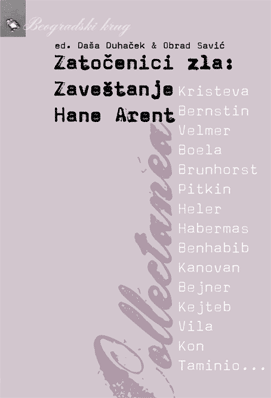
We kindly inform you that, as long as the subject affiliation of our 300.000+ articles is in progress, you might get unsufficient or no results on your third level or second level search. In this case, please broaden your search criteria.


Na poslednjim stranicama knjige Izvori totalitarizma, Hana Arent sumira svoju užasnu priču o erupciji totalitarizma u dvadesetom veku. Ona izjavljuje: Sasvim je u skladu sa čitavom našom filozofskom tradicijom to što ne možemo da pojmimo »radikalno zlo«; ovo važi i za hrišćansku teologiju, koja je čak i đavolu dala nebesko poreklo, i za Kanta, jedinog filozofa koji je, skovavši izraz »radikalno zlo«, morao makar da pretpostavi njegovo postojanje, mada ga je odmah racionalizovao u predstavi o »izopačenoj zloj volji«, koja bi se dala objasniti razumljivim motivima. Tako mi, dakle, nemamo nikakvu potporu kada pokušavamo da razumemo fenomen koji nas suočava sa nadmoćnom stvarnošću i koji ruši sva nama poznata merila. Samo se jedna stvar čini jasnom: možemo reći da se radikalno zlo pojavilo zajedno sa sistemom u kom su svi ljudi postali podjednako suvišni. Manipulatori ovog sistema veruju u sopstvenu suvišnost koliko i u suvišnost svih drugih, a totalitarni dželati su tim opasniji što ne haju za to da li su i sami živi ili mrtvi, da li su ikada živeli ili možda nikada nisu ni rođeni. Fabrike leševa i pećine zaborava opasne su zato što se danas, sa sve većom prenaseljenošću i sa sve većim brojem beskućnika, mase ljudi stalno smatraju suvišnima, bar sa strogo utilitarnog stanovišta. Političke, društvene i ekonomske tendencije širom sveta su u dosluhu sa totalitarnim institucijama koje služe tome da ljude učine suvišnima.
More...
Hana Arent se ponekad smatra važnim izvorom ili nadahnućem savremene komunitarne političke misli. U tom shvatanju postoji izvesna mera istine, ali misliti o njenoj političkoj teoriji kao izrazito komunitarnoj više je nego pogrešno. Jer, ono što karakteriše komunitarizam kao filosofsko osporavanje liberalizma jeste njegovo naglašavanje toga kako se sopstvo konstituiše kroz kolektivni ili grupni identitet, kao i argument da nedovoljna pažnja prema snazi zajedničkih identiteta obeležava središnji nedostatak liberalno-individualističkih koncepcija političke zajednice.
More...
Čini se da je karika koja nedostaje, a koja povezuje mladalačke tekstove Hane Arent sa njenim kasnijim, slavnim delima o totalitarizmu, upravo shvatanje ljudskog života kao političkog delovanja koja se otkriva u jeziku neke pripovesti ∞une histoire≤ (story i history). Pre nego što pročitamo njene zrele tekstove, potrebno je, dakle, da se pozabavimo onim što nam izgleda kao apologija pripovedanja kod Hane Arent, a što dijagonalno preseca čitavo njeno istraživanje.
More...
This paper deals with Derrida’s introduction of Levinas’s concept of trace into the thinking of différance. Since his earliest reading of that concept – in Violence and Metaphysics – was highly negative and exclusive, there obviously happened some change of perspective. In order to explain it, the author reached for Derrida’s idea of writing as grafting, considering his earlier refusal of Levinas as the “silent” entry of graft “Levinas” in his writing.
More...
This article focuses on an analysis and evaluation of the importance of Marx’s theory may have for Derrida. First, it is argued that the deconstructive reading of Marx’s texts is to be seen as the way toward the articulation of the politics and ethics in Derrida’s work. Second, the article maintains that the interpretation of Marx’s critical theory depends on the Derrida’s dealings with Levinas. I emphasize especially the significance of the phenomenology in this context, in fact, the importance of the Derrida’s dealing with the phenomenology of otherness. Third, I critically analyse in particular the concepts of absolute hospitality and messianistic coming. The conclusion is the next: Marx is, nolens volens, treated in Derrida in the light of the contradiction between ethics and politics.
More...
The author re-examines so-called “normativity problem” in the light of some Derrida’s provisional definitions of the concept of deconstruction. Alleged unbreakable connection between the elementary Derridian conception and the concept of normativity here is criticized with help of “open question argument”.
More...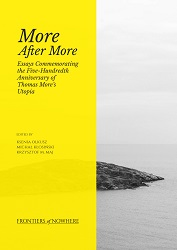

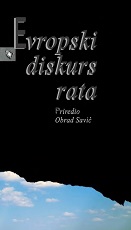
Možda ću, u okviru ovog pokušaja sveobuhvatne interpretacije, moći da odgovorim na toliko puta ponavljano pitanje o Klauzevicevom metodu i njegovom poreklu i srodnosti sa Kantovim i Hegelovim metodom. Prethodnom odeljku prvog toma svoje knjige dao sam naziv »dijalektika«. Dakle, ne dovodim u pitanje tvrdnju da su Klauzevicevo mišljenje i metod u izvesnoj meri dijalektički. Ostaje nam samo da saznamo - u kojem smislu.
More...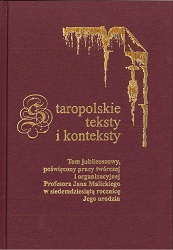
This preliminary study might be classified as an academic inquiry from the perspective of genre archaeology. In this inquiry, the author attempts to search for the genre roots of debate as a form which shaped the public discourse of that time. To this end, the author presents various practices of debate in Athens at the times of Pericles and Aristotle. Further, she presents Aristotle’s opinion regarding the usefulness of rhetoric and debate for dispute resolution in a democracy as well as his genre division of the forms of public speaking. Lastly, the author discusses several educational practices thanks to which those genre models could have been solidified and passed on to the next generations.
More...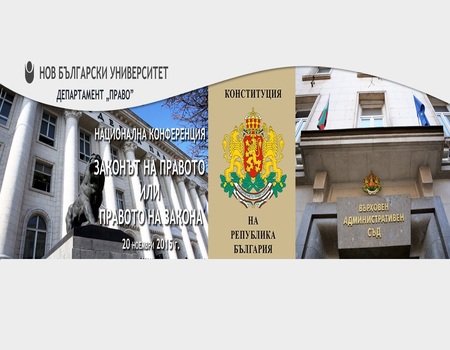
The article analyses the main theoretical models of social justice in contemporary society. The aim of the research is to reach conclusions on the conceptual and functional relationship between the modern concept of the rule of law and social justice.
More...
In this paper, I will approach the celebrated masterpiece of nineteenth century American literature — Melville’s Moby Dick using the critical concepts developed by feminist and vegetarian critics within ecofeminist theory. Thus, we will first look at the cultural production of the texts of meat, which are developed by emptying out of animal subjectivity and treating animals as referents absent from the sphere of human morality. Next, we will look at the background of the Nantucket society and whale fishing industry, and its role in strengthening the texts of meat embodied in whaling. Also, the romanticizing of violence and myth making connecting the whale men with the hunters and pioneers venerated in the myth of the American frontier are then examined. The factory function of the whale ship is analyzed in terms of industrialization encroaching upon the world of nature, and of treatment of animals as consumable commodities. Lastly, the concept of »Manifest Destiny« is read through the spectacles of extinction of whales and other species.
More...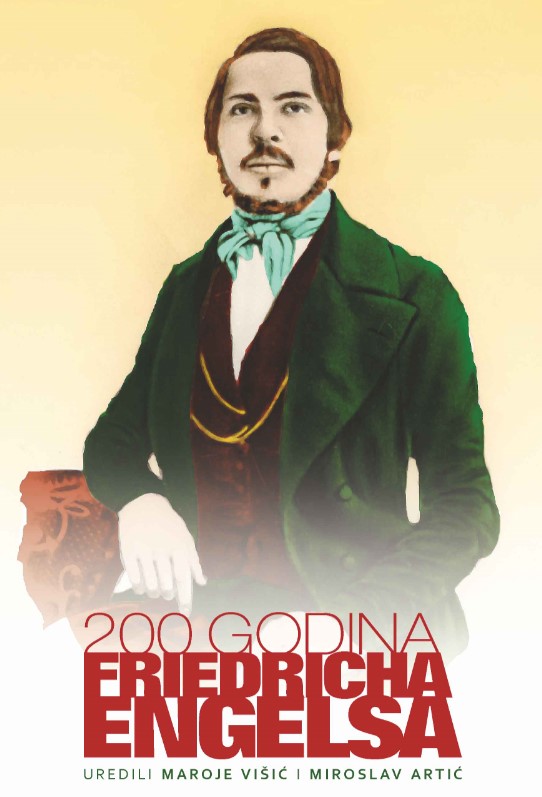
The article starts from the thesis that one of the main causes of the problems of building socialism in the 20th century is the neglect of morality in classical Marxism, analyses this neglect through a comparison of utopian and scientific socialism, and briefly follows Engels’ development from utopian socialism to scientific socialism and back. The conclusion is that the lack of morality in classical Marxism is not accidental, but that it is precisely this property that makes it untrue, but also an extremely effective socialist ideology at a time of the great crisis of capitalism. Such an understanding of Marxism is consistent with the important Marxist idea that the purpose of ideologies is not to be true, but to strengthen the economic system. In this sense, Marxism is an ideology of the collapse of capitalism.
More...
Engels’s study of the origins and ethics of early Christianity is an autonomous sphere of study that is independent of his works with Karl Marx. In several stages, Engels engaged himself in a critical study of historical sources on Christianity, as well as in the study of the revolutionary potential of religious movements in different historical periods. In this paper, we will first reconstruct Engels’ thought of Christianity, and then we will answer the question of whether Engels’ religious studies can be included in the corpus of research of the sociology of religion? The benefits of this way of designing the research problem are twofold: on the one hand, the history of the sociology of religion may pay more attention to Engels’s work and conclusions, while, on the other, it draws attention to another relatively neglected aspect of independent Engels study.
More...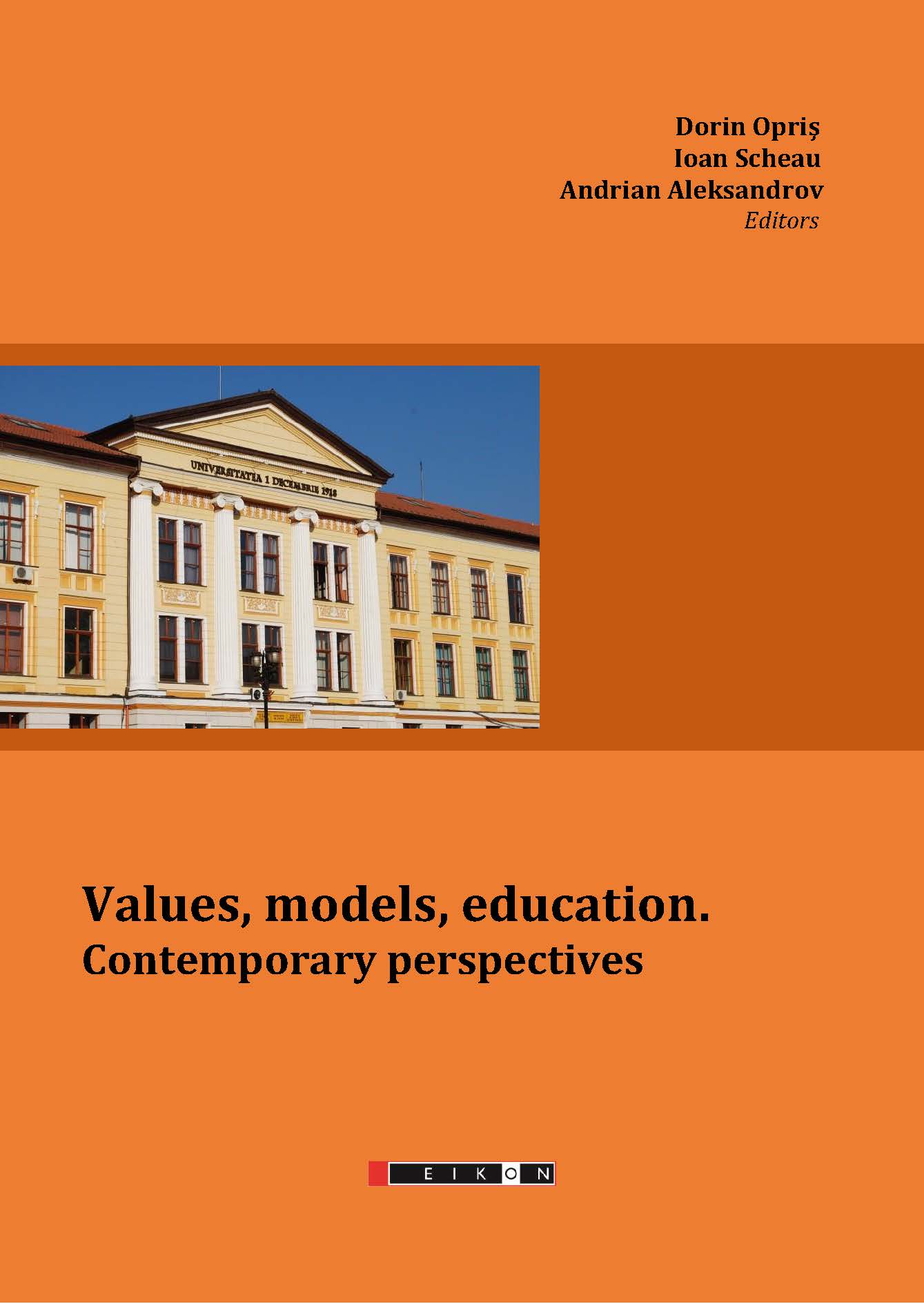
The implementation of online education has roughly the same beginnings as the Internet. Without being new, therefore, education in the online system - adopted selectively and optionally, depending on the needs and possibilities of different geographical areas of the world - has become, as a result of the medical context generated by COVID-19, part of the educational reality of any student and teaching staff respectively. An extreme situation that required the adaptation and instant reconfiguration of methods of knowledge transmission and evaluation within the institutionalized training process. Beyond the component of replacing the physical space of the class/course with a domestic environment, (a variable of great psychological impact on the subjects) there is the problem of adjustment, respectively reception and reproduction (through evaluation) of informational contents in an exclusively non-interactive manner proved to be the real challenge. One that everyone involved in the didactic process had to face, this time the "selective" and "optional" criteria becoming imperative. Even though before the start of the period in question, the e-learning system was an integral part of the educational process, it operated in a hybrid manner, with participants having the possibility of direct collaboration. The new reality, translated by cancelling these possibilities, brought with it profound transformations, especially at the cognitive, behavioural, and relational level. How the students understood to report this new reality from the perspective of ethical behaviour objectifies this article.
More...
The models are systems that orient, give direction and convey values, so their choice is essential for the path they draw. Throughout the specifics of his profession, the knowledge transmission and the education offered by himself, the teacher is a model that children follow and he is responsible for. Education transmitted to children includes personal competences, authenticity and self-respect, attitude towards learning, educational partners and learning environment, but also motivation as a resource of psychic energy necessary for learning. The own value system is the benchmark to which the teacher relates and which can be inspired by life experiences, specific teaching methods, the Bible and the supreme model, Jesus. The purpose of this article is to emphasize the importance of having an authentic role model for children to follow. Qualitative research has shown that models can influence the life course.
More...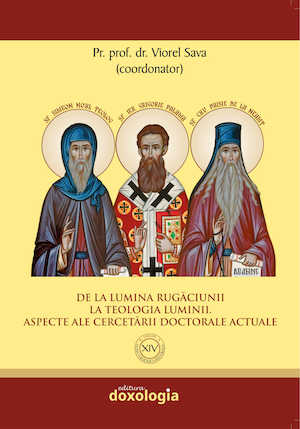
While God is the creator and giver of life, man can become co-creator in having offspring by following His command to “increase and multiply, and fill the earth and subdue it” (Gen 1: 28). Man's synergy in the creation of life is expressed by the free will of the future parents and is reflected in the resemblance between the parents and the child, due to the laws of heredity. Parenthood is therefore not determined solely by God, but it is also shaped by man based on his personal desires and goals. At the same time the notion of man as a cocreator indicates that his reproductive freedom should be in accordance with divine providence and wisdom. Therefore, procreation should not only be understood as a personal right, but also as a significant responsibility, both towards God and the child who comes into existence. The theological understanding of man as co-creator allow us to come to some conclusions regarding the ethics of termination of the unborn human life through abortion, and the human desire to overcome the obstacle of infertility through the methods of assisted reproduction.
More...
Modern medical science aims at the benefit of the patient which is achieved through the treatment of the patient. The physician must act in the best interest of the patient and consequently his health. In an ideal world every doctor besides treating a patient would also love him. In this text, there will be examined two fundamental ethical imperatives that can be applied in the doctor – patient relationship. On the one hand the position, do not do unto others as you would not like to do unto you, on the other hand the positive formulation of that sentence which is, do to others whatever you would like them to do to you. The first of those two positions can be found in the ancient oath of Hippocrates, whereas the second position is the basis of the Golden Rule of Christian ethics. These two ethical imperatives will be examined in the context of modern bioethics as well, since the benefit of the patient is the major concern of two of its basic principles, namely the principle of beneficence and that of non-maleficence. The oath of Hippocrates moves in the realm of the moral idea that you should not do to others what you do not want to be done to yourself. The above position is based on the affirmative propositions that are imprinted within the oath. On the other hand, the Golden Rule of Christian ethics consists of a positive exhortation, to do to the other what you would like to happen to you. Each Christian is called to love his fellowman as he loves himself, since the supreme good in Christian morality is the love of God and fellowman that fulfills the purpose of man’s existence, which is the communion with God. Both positions examined in the text have relevant content, aiming at the benefit of the patient, the patients good, either by a direct positive obligation, or by preventing the doctor from harming the patient.
More...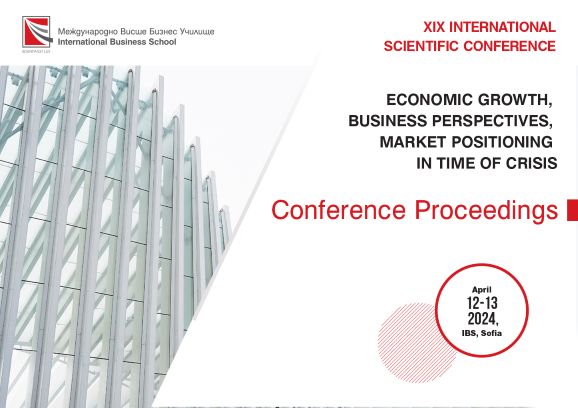
This article addresses key ethical questions surrounding AI in academic publishing and provides a short overview of existing policies and guidelines from major publishing organizations. Publishers today face the challenge to completely reshape their attitude towards new technologies and traditional methods of publishing and regulations shaping the publication process from start to finish. Comprehensive AI policies are required at every stage – from author’s guidelines to detailed instructions for editors and reviewers. The evolving publishing landscape raises important ethical considerations, extending beyond the publishing process itself to fundamental concepts such as authorship. A reevaluation of authorship as an institution is essential, along with a phenomenological approach to understanding the role of technology in generating meaning and mediating new ideas. While AI challenges traditional publishing, it also offers tools to combat unethical practices in publication process today.
More...